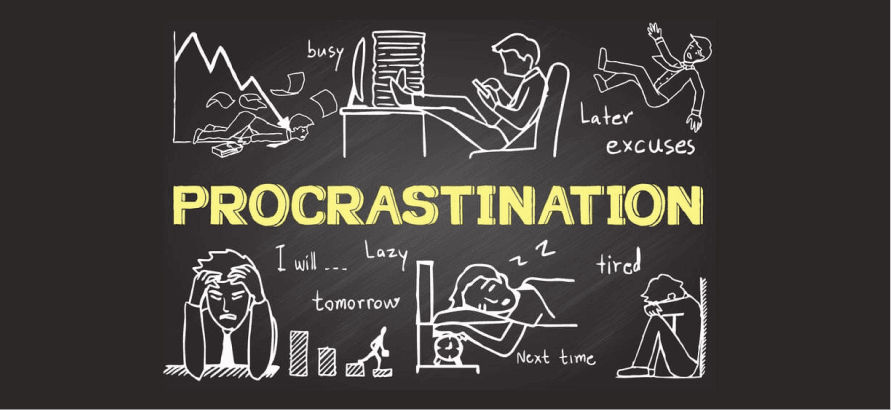Make a task less aversive
When you notice yourself procrastinating, use your procrastination as a trigger to examine a task’s characteristics and think about what you should change.
By breaking down exactly which attributes an aversive task has (boring, frustrating, difficult, meaningless, ambiguous, unstructured), you can take those qualities and turn them around to make the task more appealing to you.
6.81K
28.7K reads
CURATED FROM
Here's why you procrastinate & tactics that will help you stop
alifeofproductivity.com
12 ideas
·258K reads
IDEAS CURATED BY
Always appreciate the time you get, because you never know how much longer it`ll last.
The idea is part of this collection:
Learn more about timemanagement with this collection
Cultivating self-awareness and self-reflection
Prioritizing and setting boundaries for self-care
Practicing mindfulness and presence
Related collections
Similar ideas to Make a task less aversive
Why you procrastinate
Procrastination is fundamentally an emotional reaction to what you have to do. The more aversive a task is to you, the more you’ll resist it, and the more likely you are to procrastinate.
Aversive tasks tend to: be boring, frustrating, difficult, lack intrinsic rewards, be ...
How to manage your procrastination triggers
Procrastination is a signal that something is wrong, and you need to change the way you approach a task.
There are three ways to deal with your procrastination triggers.
- Consider why you are procrastinating. Often, tasks you don't want to do c...
Read & Learn
20x Faster
without
deepstash
with
deepstash
with
deepstash
Personalized microlearning
—
100+ Learning Journeys
—
Access to 200,000+ ideas
—
Access to the mobile app
—
Unlimited idea saving
—
—
Unlimited history
—
—
Unlimited listening to ideas
—
—
Downloading & offline access
—
—
Supercharge your mind with one idea per day
Enter your email and spend 1 minute every day to learn something new.
I agree to receive email updates
